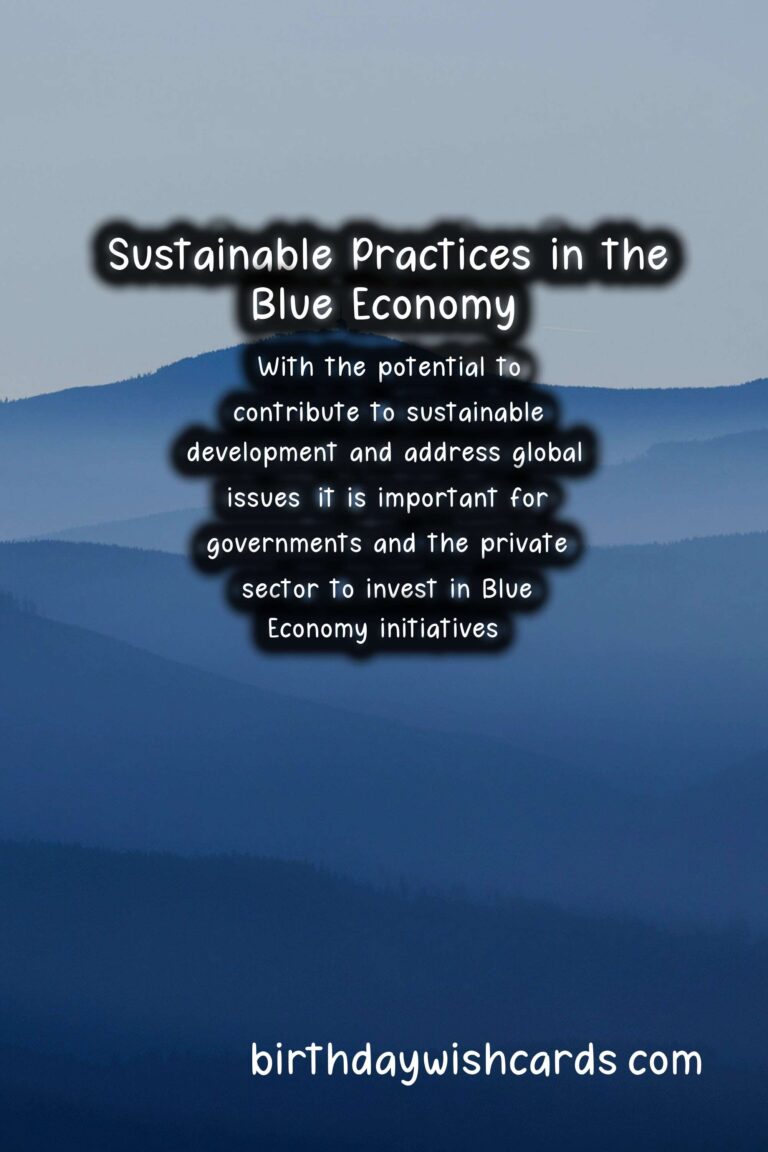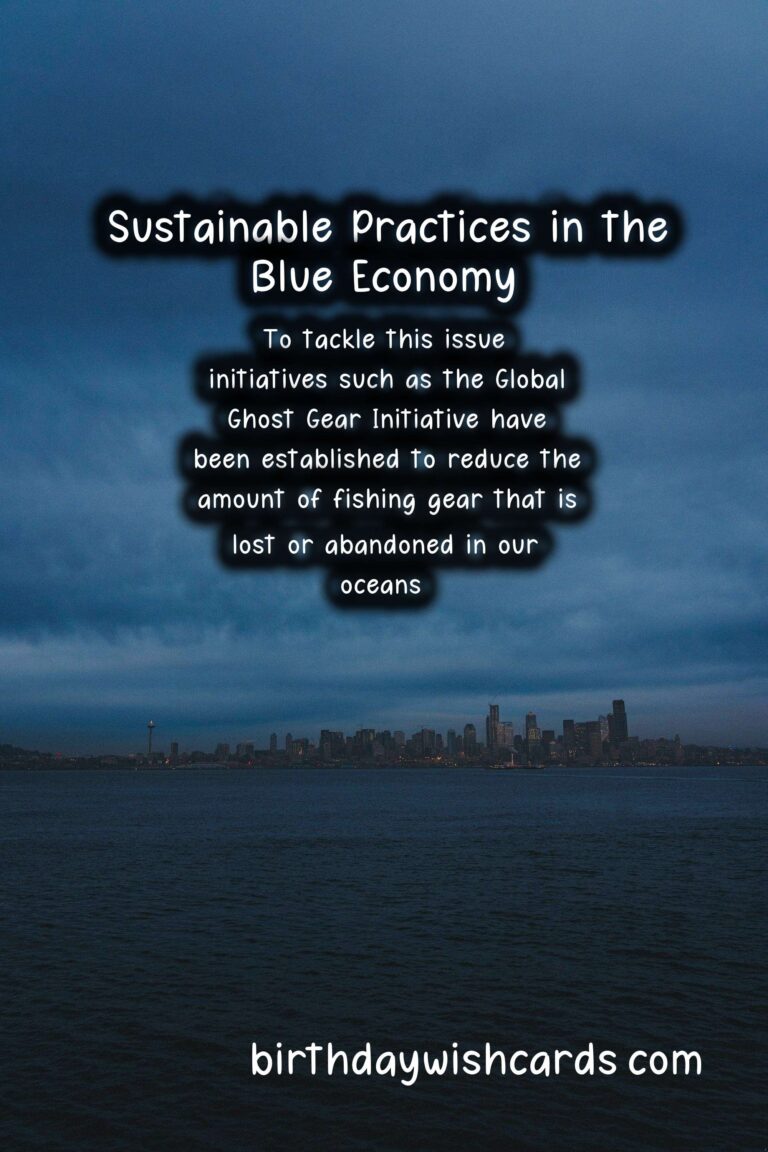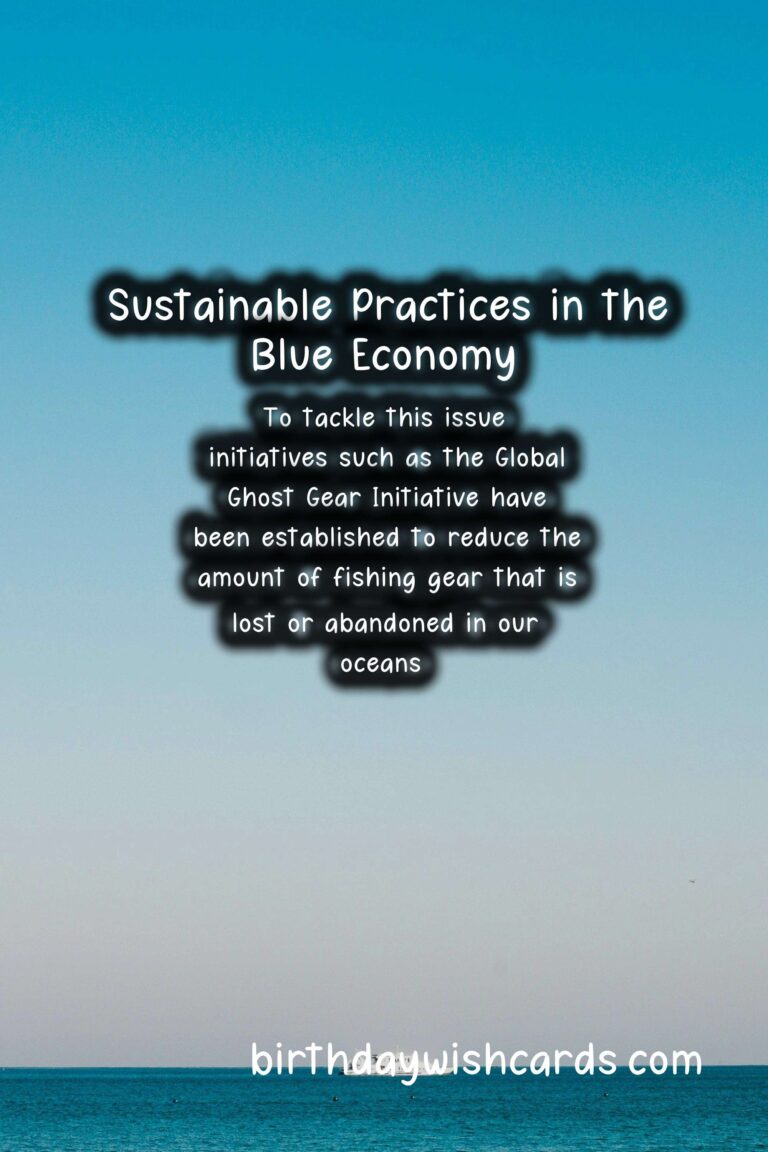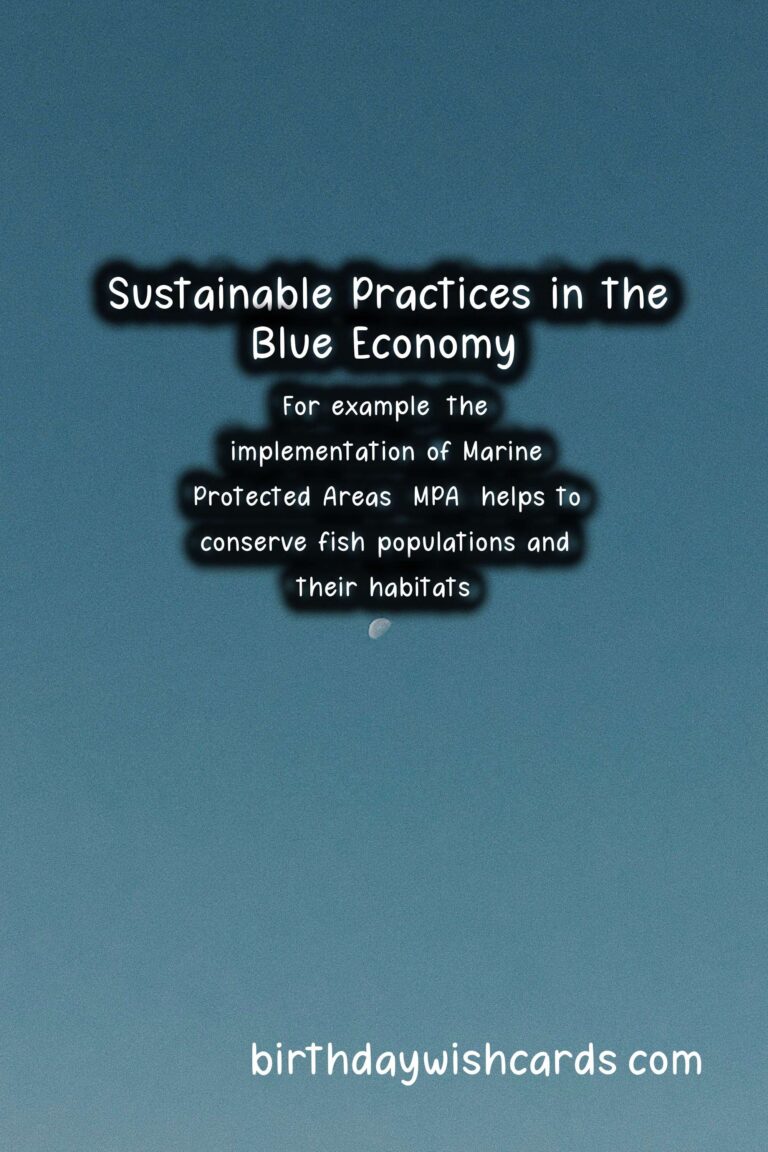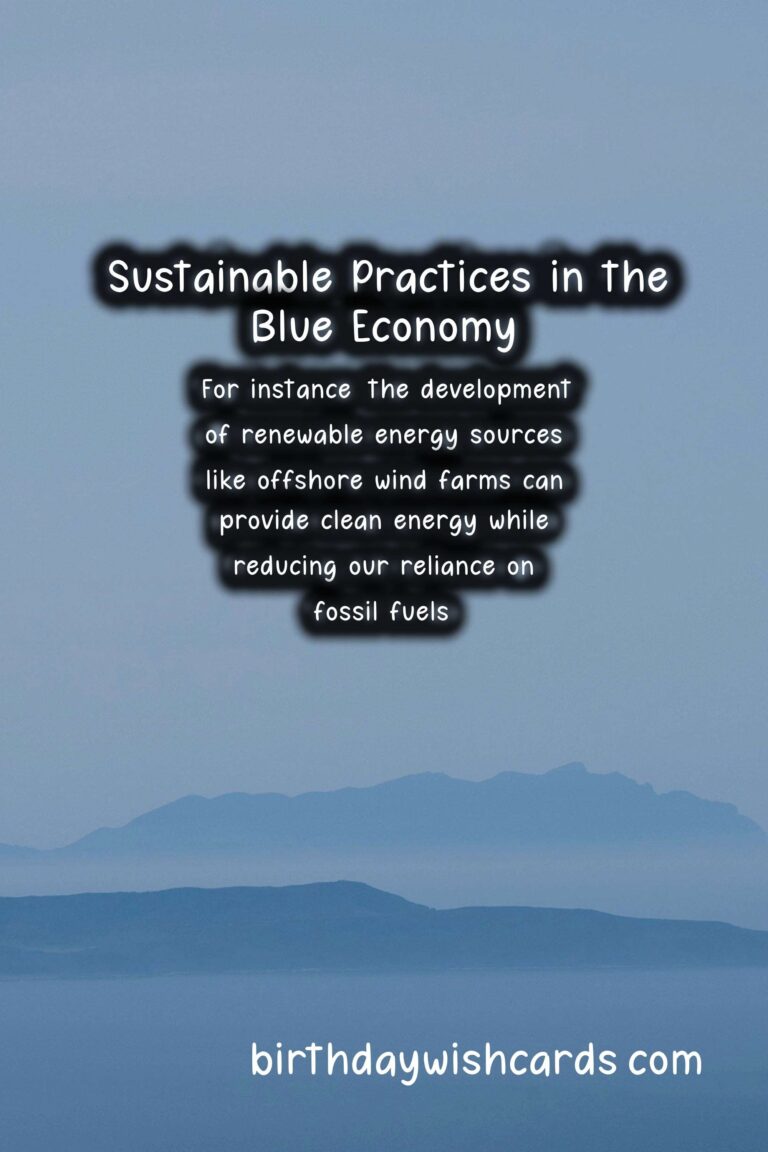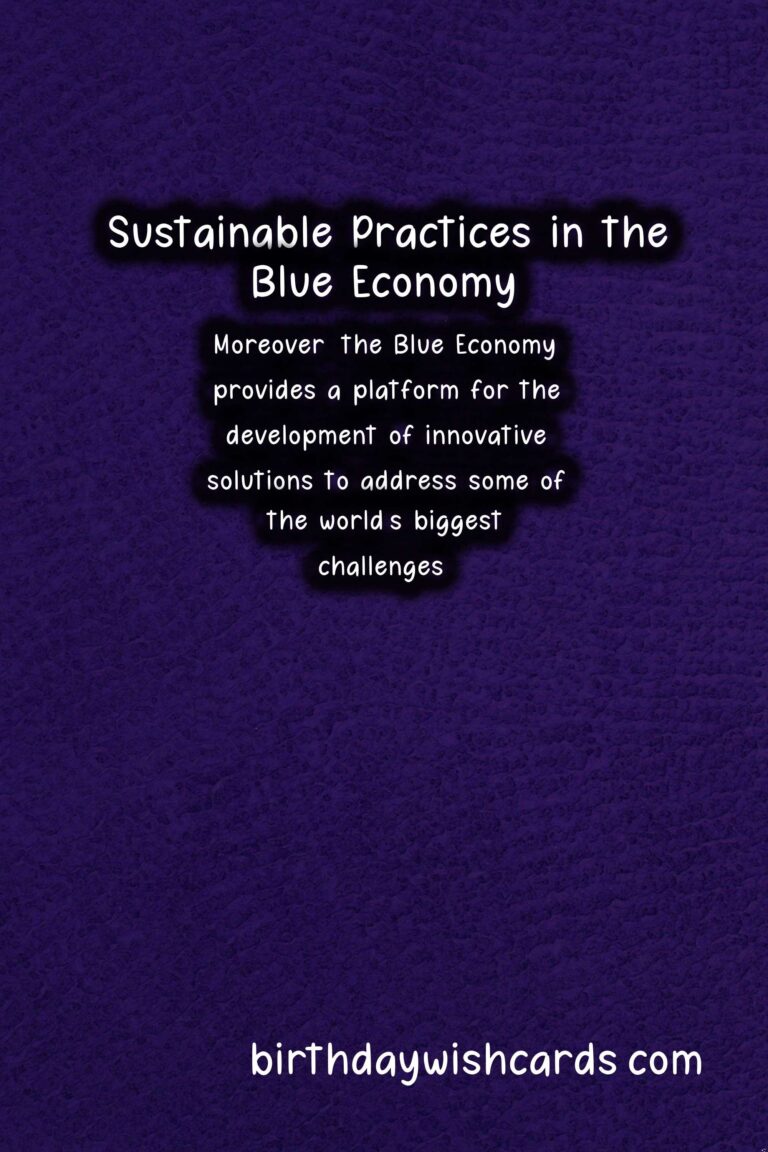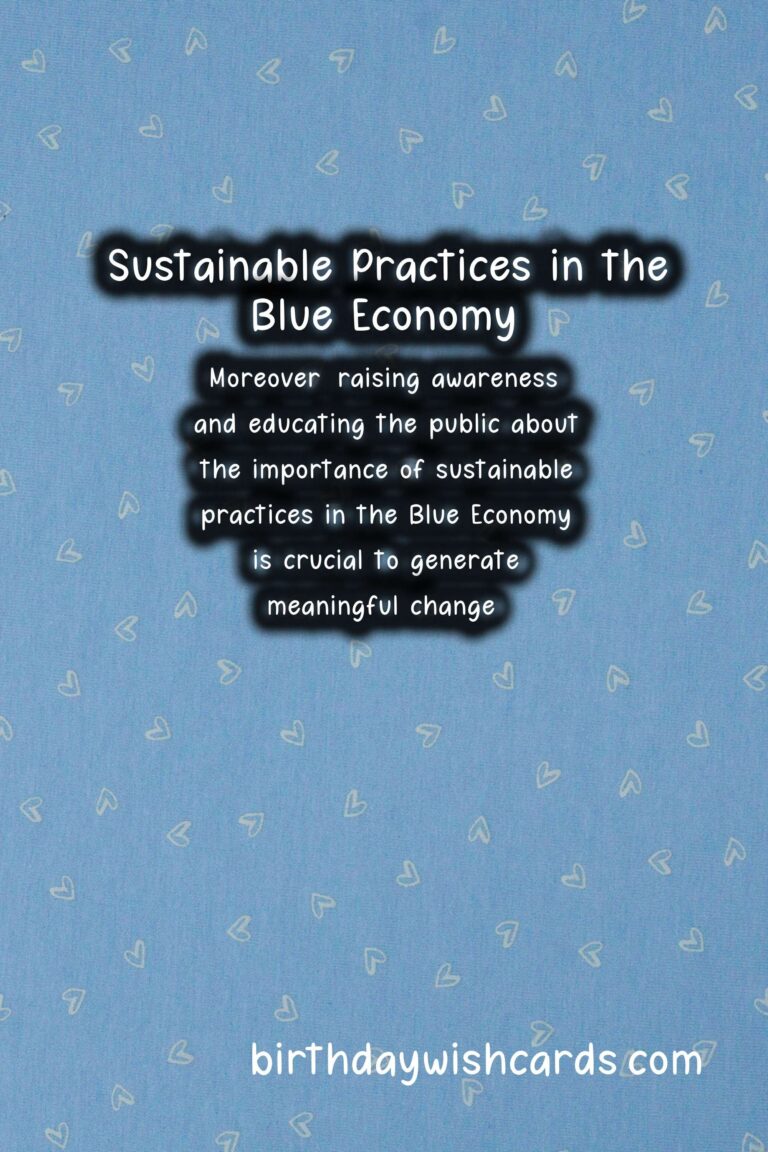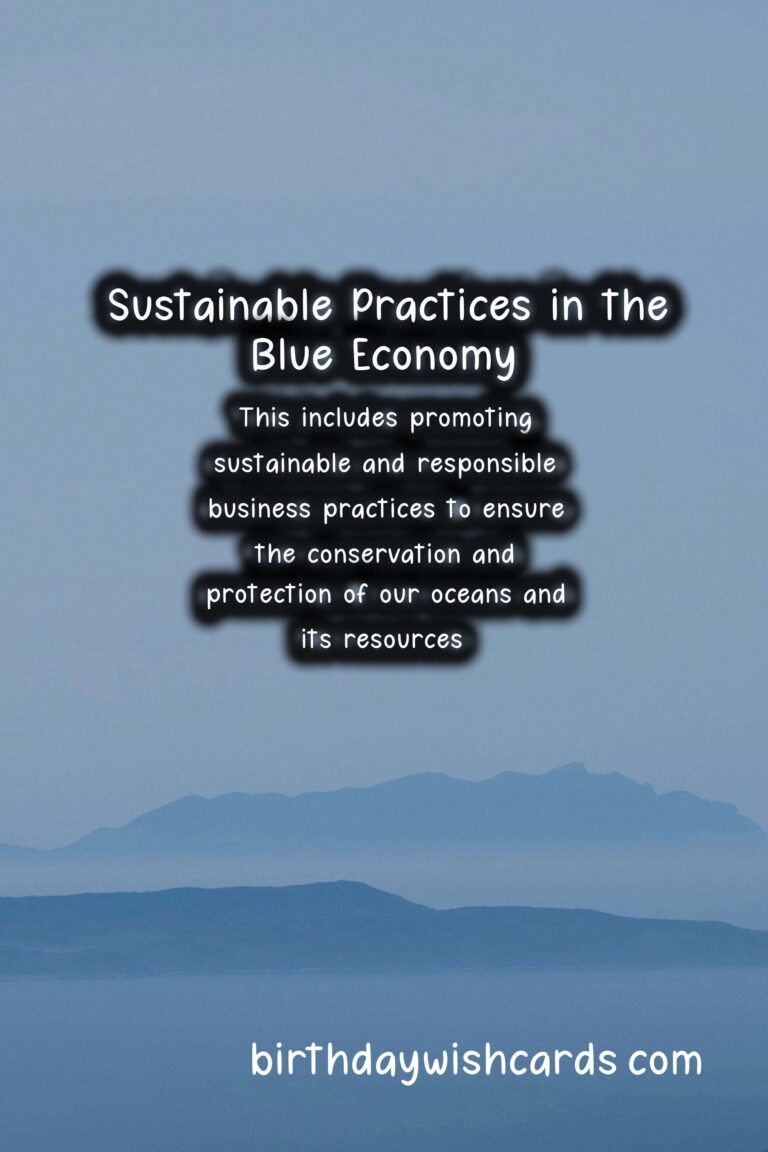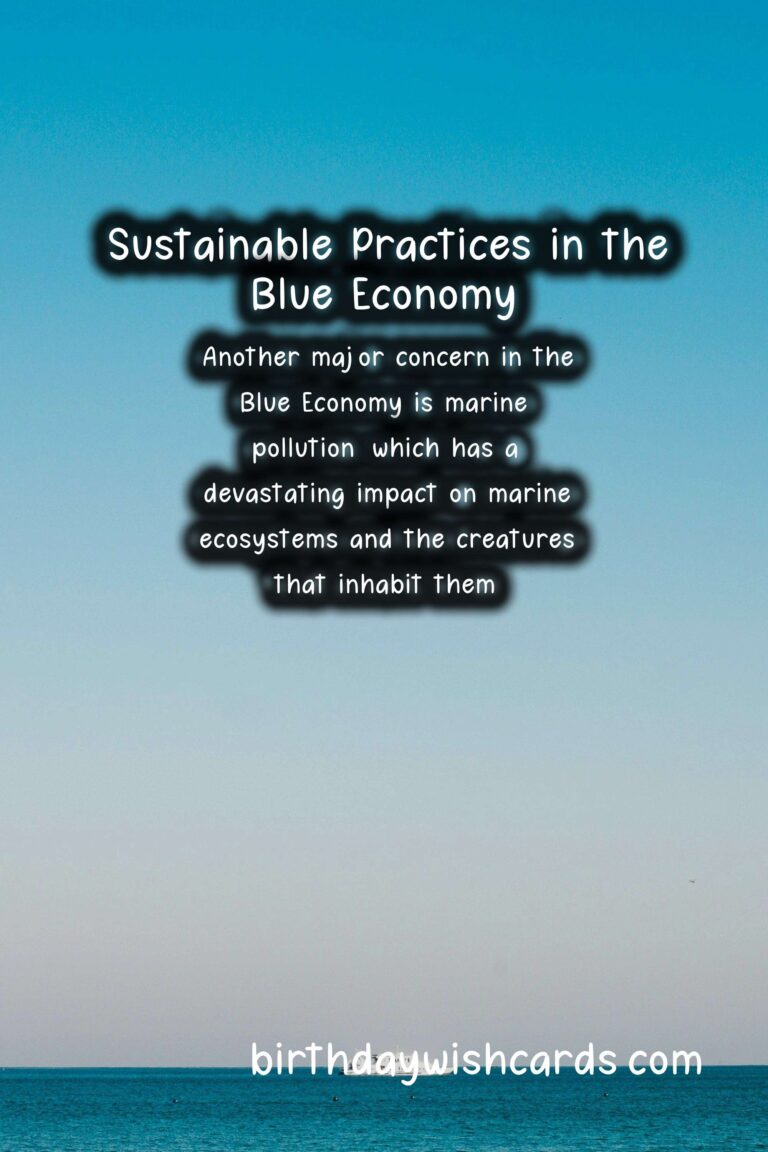 In the face of environmental deterioration and climate change, sustainability has become a global concern. With the world’s growing population and increasing pressure on the Earth’s resources, it is important to find solutions to manage these resources in a sustainable manner. One such area of focus is the ocean, which covers over 70% of the Earth’s surface and plays a critical role in sustaining life on our planet. The Blue Economy, also known as the ocean economy, refers to all economic activities that take place in or around the ocean. This includes fisheries, shipping, tourism, energy, and biotechnology. Today, many initiatives are being taken to promote sustainable practices in the Blue Economy, in order to ensure the long-term viability of our oceans. The concept of the Blue Economy is based on the idea of using the ocean’s resources in a sustainable manner. This includes balancing economic growth with environmental protection and social equity. One of the key challenges faced by the Blue Economy is overfishing, which has led to a decline in fish populations. To address this issue, sustainable fisheries management practices are being implemented. For example, the implementation of Marine Protected Areas (MPA) helps to conserve fish populations and their habitats. Another major concern in the Blue Economy is marine pollution, which has a devastating impact on marine ecosystems and the creatures that inhabit them. To tackle this issue, initiatives such as the Global Ghost Gear Initiative have been established to reduce the amount of fishing gear that is lost or abandoned in our oceans. This helps to protect marine life and maintain the health of our oceans. At the same time, the Blue Economy also presents opportunities for sustainable economic growth and job creation. For instance, the development of renewable energy sources like offshore wind farms can provide clean energy while reducing our reliance on fossil fuels. The growth of coastal and marine tourism also has the potential to bring economic benefits to coastal communities while promoting conservation and sustainable practices. Moreover, the Blue Economy provides a platform for the development of innovative solutions to address some of the world’s biggest challenges. For instance, marine biotechnology research has yielded promising results in areas such as medicine and food production. With the potential to contribute to sustainable development and address global issues, it is important for governments and the private sector to invest in Blue Economy initiatives. This includes promoting sustainable and responsible business practices to ensure the conservation and protection of our oceans and its resources. In addition, it is essential to involve local communities and indigenous people in decision-making processes to ensure their rights and livelihoods are protected. Moreover, raising awareness and educating the public about the importance of sustainable practices in the Blue Economy is crucial to generate meaningful change. In conclusion, the Blue Economy presents both challenges and opportunities for achieving ocean sustainability. With the implementation of sustainable practices, we can ensure that our oceans continue to provide for us while protecting the environment and promoting economic growth for future generations.
In the face of environmental deterioration and climate change, sustainability has become a global concern. With the world’s growing population and increasing pressure on the Earth’s resources, it is important to find solutions to manage these resources in a sustainable manner. One such area of focus is the ocean, which covers over 70% of the Earth’s surface and plays a critical role in sustaining life on our planet. The Blue Economy, also known as the ocean economy, refers to all economic activities that take place in or around the ocean. This includes fisheries, shipping, tourism, energy, and biotechnology. Today, many initiatives are being taken to promote sustainable practices in the Blue Economy, in order to ensure the long-term viability of our oceans. The concept of the Blue Economy is based on the idea of using the ocean’s resources in a sustainable manner. This includes balancing economic growth with environmental protection and social equity. One of the key challenges faced by the Blue Economy is overfishing, which has led to a decline in fish populations. To address this issue, sustainable fisheries management practices are being implemented. For example, the implementation of Marine Protected Areas (MPA) helps to conserve fish populations and their habitats. Another major concern in the Blue Economy is marine pollution, which has a devastating impact on marine ecosystems and the creatures that inhabit them. To tackle this issue, initiatives such as the Global Ghost Gear Initiative have been established to reduce the amount of fishing gear that is lost or abandoned in our oceans. This helps to protect marine life and maintain the health of our oceans. At the same time, the Blue Economy also presents opportunities for sustainable economic growth and job creation. For instance, the development of renewable energy sources like offshore wind farms can provide clean energy while reducing our reliance on fossil fuels. The growth of coastal and marine tourism also has the potential to bring economic benefits to coastal communities while promoting conservation and sustainable practices. Moreover, the Blue Economy provides a platform for the development of innovative solutions to address some of the world’s biggest challenges. For instance, marine biotechnology research has yielded promising results in areas such as medicine and food production. With the potential to contribute to sustainable development and address global issues, it is important for governments and the private sector to invest in Blue Economy initiatives. This includes promoting sustainable and responsible business practices to ensure the conservation and protection of our oceans and its resources. In addition, it is essential to involve local communities and indigenous people in decision-making processes to ensure their rights and livelihoods are protected. Moreover, raising awareness and educating the public about the importance of sustainable practices in the Blue Economy is crucial to generate meaningful change. In conclusion, the Blue Economy presents both challenges and opportunities for achieving ocean sustainability. With the implementation of sustainable practices, we can ensure that our oceans continue to provide for us while protecting the environment and promoting economic growth for future generations. 
